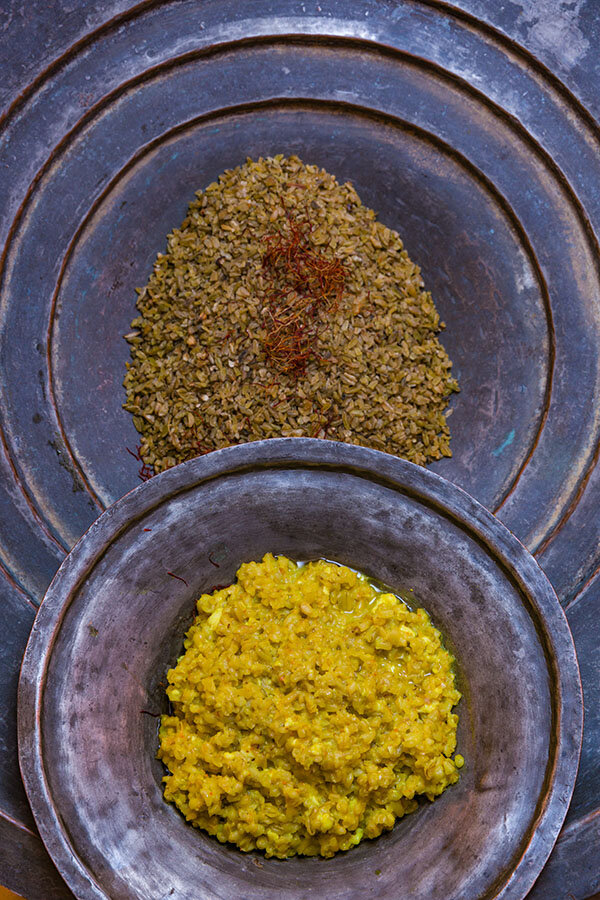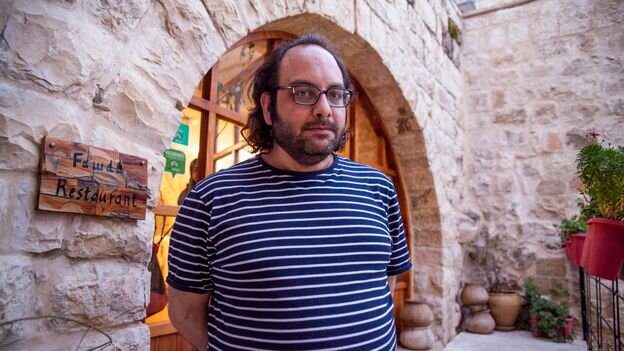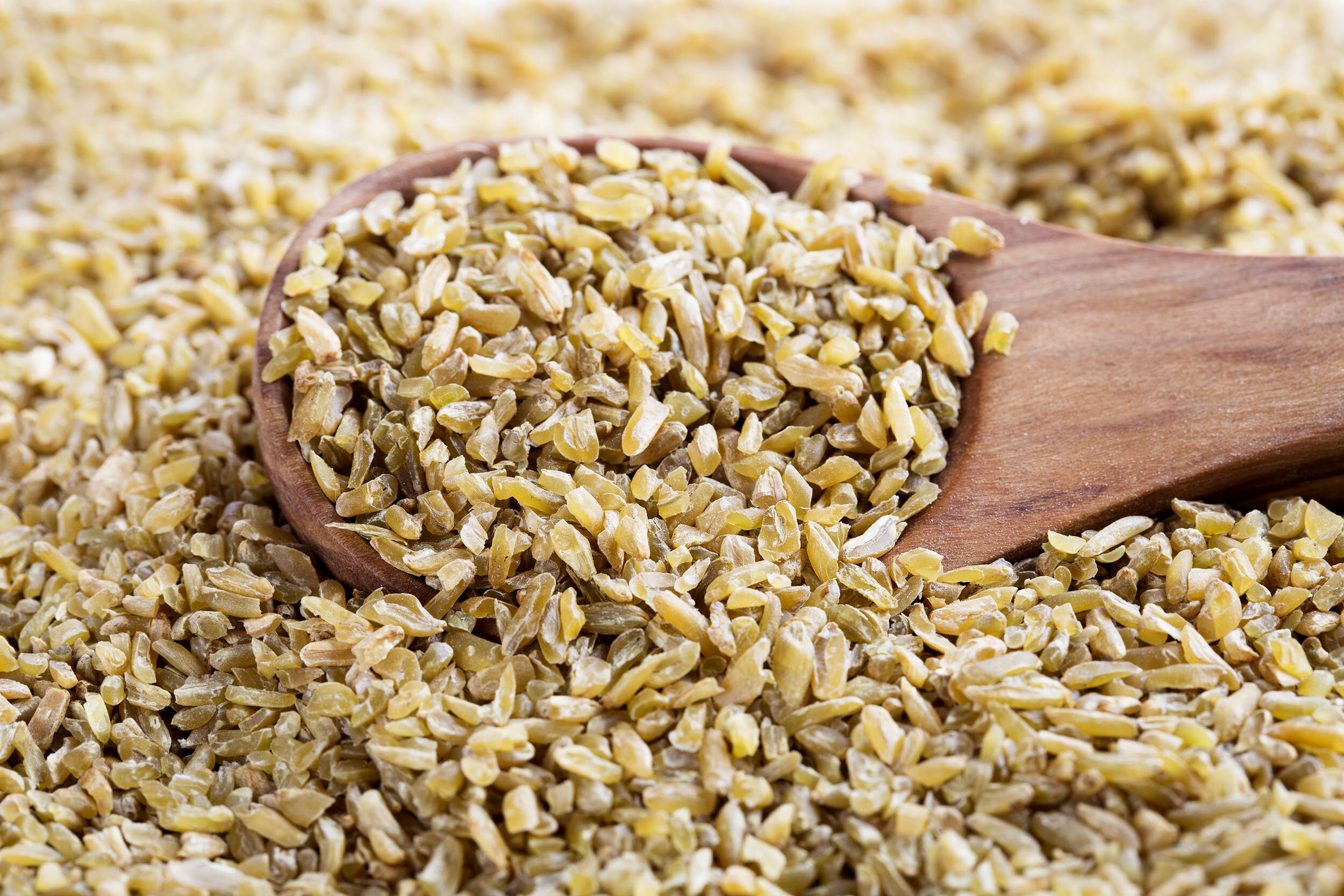Chef Fadi Kattan
Some people say I am mad about freekeh, that fantastic earthy, intense grain. The world has been taken by the super grain trend and freekeh figures somewhere high up among the most adored ones.
But what is freekeh? Etymologically the name comes from the arabic yofrok, the action of rubbing in between your hands. The green durum wheat grain is harvested while still young and moist, sundried for a day or two and then piled up and set on fire in an impressively crafted way, taking into consideration the wind, the placement and mastering the flames so as to char the grains but not burn them. The result is heaps of charred wheat that then go through the process of being rubbed in order to remove the burnt shells by rubbing vigorously the grain in between one’s palms or by thrashing.

The story behind freekeh is that in 2300 B.C, a nation in our region was preparing to be attacked by a neighboring aggressor and picked their wheat green and young. They stored it in the hope that the town would resist the aggressor. That failed dramatically and the aggressors burned down the storage buildings. The survivors, not wanting to let their wheat go to waste, ended up rubbing off the burnt shells. They cooked the wheat and thus freekeh came into our cuisine!
Many stories of food come from aggressions and appropriations and freekeh started 4,300 years ago with one and today lives another one. In the pursuit of food provenance, origin and history, many try to claim the origin of freekeh which leads to incongruous situations. We are seeing a plethora of Israeli chefs claiming freekeh as theirs or diffusing its origin by not claiming any provenance. Upon asking an older Palestinian woman in the Jenin area while she was rubbing the freekeh what she thought of that, she smiled and said: “My son, I have learned this craft from my grandmother, who learned it from her grandmother, who was born well before the end of the Ottoman Empire’s rule.”
I personally have no problem with anyone cooking freekeh and on the contrary encourage everyone to try this wonderful grain, but expect that its provenance be honored and that the craft of those farmers be respected and elevated. The same goes for much of Palestinian product which has been culinarally appropriated. From Freekeh to zaatar and lebaneh and many others, the craft of wonderful artisans, passed on from generation to generation, is in today’s world being forgotten and its beauty stolen rather than being honored for gifting us these delicious victuals.
Freekeh is being used as a staple all along the Mediterranean from the delicious Hamam bil-ferik (pigeons stuffed with freekeh) in Egypt to the Tunisian Shorbat farik bil mukh (bone marrow soup with freekeh), from the sumptuous Aleppo Tatbeekah (freekeh pilaf covered with white rice and ground lamb meat) to the intense Shorbat freekeh done in Sabastyia by my friend Abu Mohammad.
I have had much fun with freekeh, very seldom using rice in my Fawda restaurant kitchen. From traditional freekeh pilafs to a freekeh risotto that has become a favorite among my guests to new recipes for an upcoming London food venture, freekeh is always there in my cooking.

Freekeh provokes a love or hate relationship, provokes discussions of do you wash freekeh or not? My younger brother Karim hates freekeh while my sister Muna loves my freekeh risotto. Many older Palestinian women from whom I learn a lot of cooking tips have their hair rise when I say that I don’t wash the freekeh before cooking it. I’ll leave you with my recipe for freekeh risotto and hope that you’ll be as crazy about it as Muna.
Sa7tayn and bon appétit!
First the vegetable broth:
Start with vegetable and herb scraps—thyme, oregano, carrot tops and ends, onion tops, parsley stems, zaatar leaves, tomato cores, celery bits—and water. Put all the vegetable and herbs in a pot, cover with water, boil for 45 minutes. When done strain and reserve the quantity needed. The rest can go into pots in the fridge or freezer.
Ingredients for the Freekeh Risotto:
6 cups vegetable & herb broth
A few leaves of sage
1 tablespoon saffron threads
3 tablespoons olive oil
2 small yellow onions minced
Pinch of ground cardamom and pinch of ground ginger
2 cups freekeh (rinsed)
1 cup Taybeh Sauvignon Blanc (if not available, use a good quality crispy, high acidity white wine)
½ cup Baladi Cheese (you may substitute it with a soft, creamy country goat cheese)
1 tablespoon olive oil
Coarse Dead Sea Salt (or coarse Himalayan pink salt if not available) and freshly ground white pepper
Cooking Instructions:
1. Put the vegetable broth, the sage leaves and the crushed saffron threads in a pot and heat on medium heat.
2. In a large pot, heat the olive oil, and then the onions. Cook until soft. Add the cardamom and ginger.
3. Add the freekeh. You need to rinse the freekeh beforehand and remove the small stones.
4. Stir the freekeh in the olive oil and onion mix for 3 to 4 minutes.
5. Add the Sauvignon Blanc wine. Cook until the wine has evaporated.
6. Add ½ cup warm broth. Cook while stirring until absorbed.
7. Continue adding ½ cup broth at a time and stirring until evaporated.
8. When the freekeh is cooked and creamy, remove from the heat, stir in the olive oil, Baladi cheese and salt and pepper to taste.





